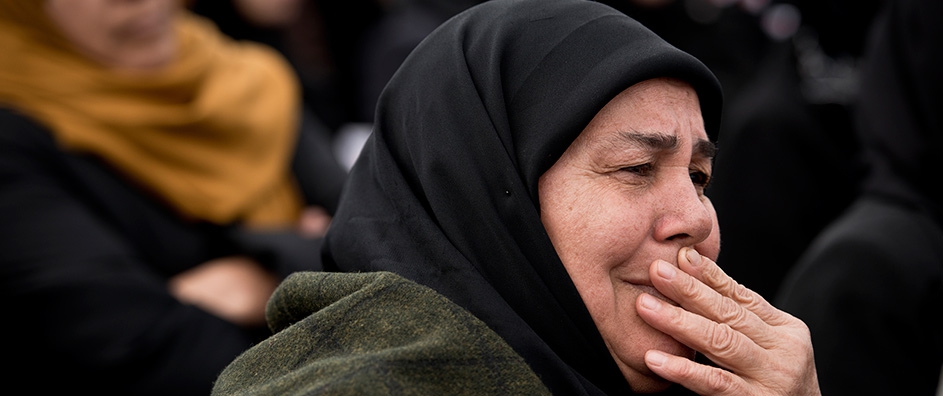The views expressed in our content reflect individual perspectives and do not represent the authoritative views of the Baha'i Faith.
…true religion promotes the civilization and honor, the prosperity and prestige, the learning and advancement of a people once abject, enslaved and ignorant, and how, when it falls into the hands of religious leaders who are foolish and fanatical, it is diverted to the wrong ends, until this greatest of splendors turns into blackest night. – Abdu’l-Baha, The Secret of Divine Civilization, p. 79.
In 1938, as we learned earlier in this series of articles, the Nazi Propaganda Minister Joseph Goebbels outlawed the Baha’i Faith.
In 1979, the same thing happened in Iran, and today it continues in an even more secretive and diabolical way.
The persecution suffered by the Baha’i community of Iran since the Islamic Revolution in 1979–well documented by the United Nations, human rights organizations and the global media—has not only continued, but has now taken on a new, sinister and devious form.
The attack on Baha’i life in post-revolutionary Iran has included illegal appropriation and destruction of Baha’i holy places; confiscation and destruction of Baha’i community buildings; demolition, defacing and razing of Baha’i cemeteries; and the dissolution by government decree of all Baha’i administrative bodies and community activities. These blatant attacks against Baha’i community property and institutions, however, have been dwarfed by the scale and severity of the attacks on the human rights of the Baha’is themselves—including immediate expulsions from universities and schools; denial of education for Baha’i children and youth; mass firings from government and private-sector jobs; the failure of authorities to pursue and punish those committing crimes against Baha’is; and in many cases, imprisonment, torture, show trials, disappearances and executions.
These extreme violations of the human rights of the Baha’is have received public attention all around the world–but the Iranian government has so far managed to largely hide from the public eye their widespread, vicious and destructive economic campaign against the Baha’i community.
Taking a page from the early Nazi persecution of the Jewish community in the 1930’s, this unscrupulous campaign has now grown exponentially, and targets individual Baha’is systematically. By denying Baha’is employment and education, by confiscating Baha’i businesses and bank accounts, by an ongoing propaganda war against the Baha’is in the state-controlled Iranian media, and by a methodical mass encouragement of the fundamentalist Muslim population to shun, attack and even kill Baha’is with impunity, the Iranian government intends to strangle, starve and stamp out the hundreds of thousands of Iranian Baha’is—all done in a silent way that remains obscured and hidden from a watching world.
This new attempt at a surreptitious, hidden genocide will only succeed if the world stops watching.
Because a general description of this campaign to eliminate the Baha’is doesn’t truly reveal the scope of Iran’s silent genocide, we plan, in this series of essays, to tell some of the stories of the innocent Iranian Baha’is in Iran who have suffered terribly as a result of the government’s campaign. The documents utilized to tell these true stories do not come from the Baha’is—instead they originate in official government documents, newspaper accounts and the files of Iran Press Watch, the independent, unaffiliated media agency that surveys the Persian-language press as it pertains to the persecution of the Baha’is.
Let’s start with the economic persecution—and outright theft—the Iranian government has used against the Baha’is from the beginning.
Baha’is voluntarily support and underwrite their Faith’s activities at the national and local levels by Baha’i funds, to which Baha’is, and only Baha’is, can contribute. In a large community like the Iranian Baha’is, the total of all of the individual local funds and the national fund as well as any sums being held in the country for the international Baha’i funds can add up to a substantial amount of money.
In 1979, shortly after the Iranian revolution occurred, the revolutionary government froze and then confiscated all these communal funds. Just as the Nazis did to the Jewish community, its banks and businesses in the 1930’s, the Iranian Government has done to the Baha’is.
In 1979 the Baha’i community of Iran held some 1,000 or more communal properties. These comprised buildings used for meetings and worship, cemeteries, holy places associated with the founders of the Baha’i Faith and a large hospital in Tehran, which treated people of all religions and donated its services to the poor at no cost. For legal purposes, these communal properties were in the name of a holding company called the Trustees Company (Shirkat-i Umana). Within a few months of the revolution, this company was seized by the new government, its offices raided, its documents and property deeds removed and all of its properties, including the hospital and cemeteries, identified, confiscated and placed under the control of the government.
The Baha’i Children’s Savings Company, known in Iran as Shirkat-i Nawnahalan, began as a savings bank for Baha’i children in 1917. As successive generations of Baha’i children grew up, they kept their savings–primarily intended for their future educations–with the company, and local and national Baha’i institutions also placed their deposit funds there. The Iranian government raided and took over the offices of this company in early June of 1979, freezing and then confiscating all of its assets, estimated at $5 million—literally stealing money from children.
Three smaller institutions owned by the Baha’i community, the Vahhaj, Matla and Huqúq companies, served as holding companies for various types of funds and properties. The Islamic Republic formally confiscated the assets of these three organizations, and those of the Trustees Company and the Children’s Savings Company, in verdicts handed down by the Central Islamic Revolutionary Court, Branch 1, on 7 November 1979. Not only a blow to Iran’s Baha’i institutions, this action also stole the savings from an estimated 15,000 individual Baha’is.
The Iranian government’s campaign of economic genocide against Iran’s Baha’is had begun.

















Comments
Sign in or create an account
Continue with Googleor